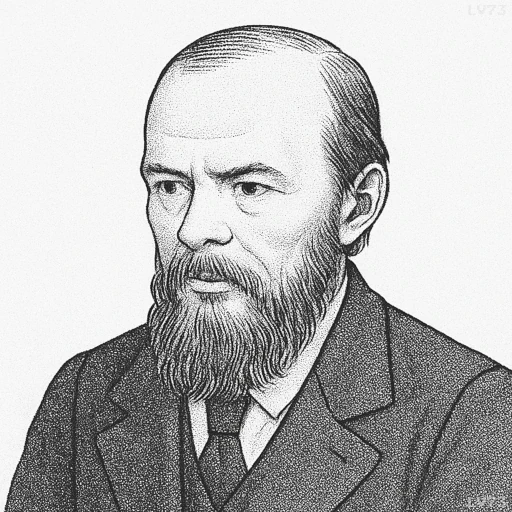“One can know a man from his laugh, and if you like a man’s laugh before you know anything of him, you may confidently say that he is a good man.”

- November 11, 1821 – February 9, 1881
- Born in the Russian Empire
- Novelist, philosopher
table of contents
Quote
“One can know a man from his laugh, and if you like a man’s laugh before you know anything of him, you may confidently say that he is a good man.”
Explanation
Dostoevsky’s quote suggests that a person’s laughter is an authentic expression of their character and moral essence. In many of his works, he explores the idea that human beings are often shaped by subconscious drives and instincts, and here, he suggests that the genuineness of a person can be felt in something as spontaneous and natural as their laugh. The idea that a laugh reveals something about the goodness of a person aligns with Dostoevsky’s understanding of the soul and human connection—that even without knowing a person’s history or circumstances, a simple, joyful expression like laughter can be a reflection of their moral clarity or innocence.
The notion that we can determine a person’s goodness from their laugh touches on Dostoevsky’s broader theme of authenticity versus facade. Throughout his works, his characters are often torn between their external persona—shaped by societal expectations or personal insecurities—and their true selves. In a world where people often conceal their true emotions or intentions behind facades, laughter remains one of the most unguarded and revealing expressions. Dostoevsky’s suggestion implies that if someone’s laugh is genuine, spontaneous, and uplifting, it may signify a purity of soul or a good heart, as this quality is harder to fake than other external behaviors.
In modern life, this quote holds relevance as a reminder of the power of authenticity and connection in our interactions with others. In a world of complex social dynamics, social media, and personal branding, it’s easy to overlook the simple moments that reveal someone’s true character. Yet, the idea that a person’s laugh can be a key to their moral nature encourages us to focus less on appearances or conventional judgments and more on spontaneous, genuine expressions—those moments when people let down their guard and show who they really are. Whether in friendships, romantic relationships, or professional interactions, a genuine laugh may indeed be a reliable indicator of someone’s character, offering a glimpse into their sincerity, joy, and fundamental goodness.
Would you like to share your impressions or related stories about this quote in the comments section?



